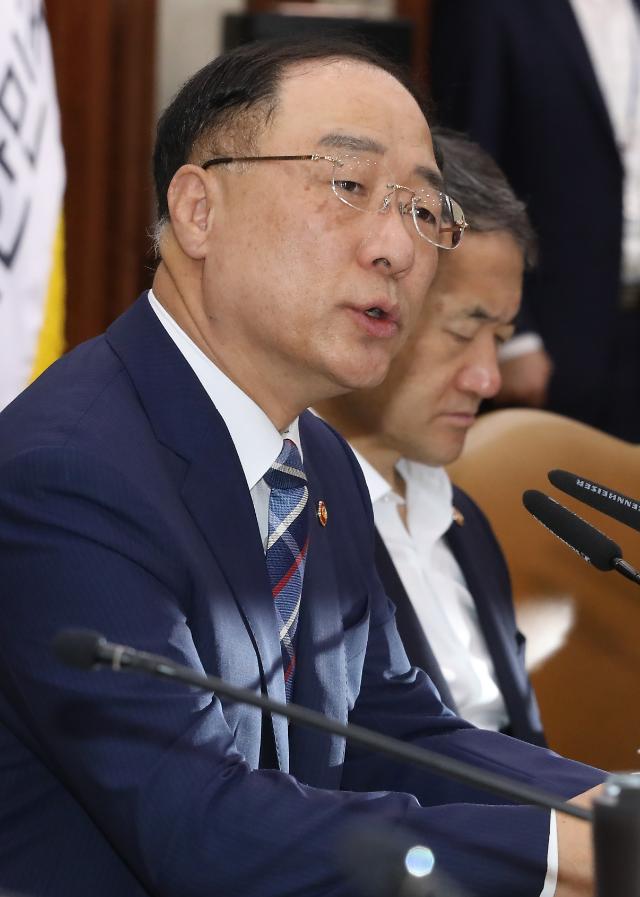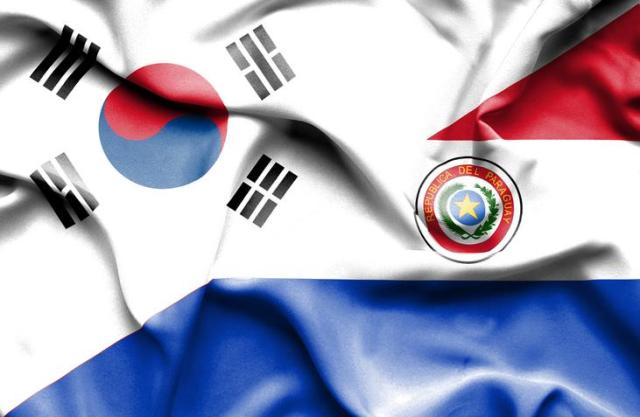
[Yonhap Photo]
Strategy and Finance Minister Hong Nam-ki told a meeting of economic officials on Wednesday that Japan should not undermine the basis of reciprocal economic cooperation with South Korea with trade curbs. "We urge Japan to withdraw its export control measures and start consultations."
"Japan's move is feared to serve as a factor that further weakens the GVC structure beyond relations between South Korea and Japan, thus limiting global economic growth," Hong said. "It's never desirable for both South Korea and Japan, as well as the global economy if the current situation deteriorates due to a cut in dialogue."
South Korean officials are worried about irrecoverable trade relations between Seoul and Tokyo if Japan takes additional measures, including the removal of South Korea from a so-called "white list" of trusted importers. President Moon Jae-in has warned of strong countermeasures, accusing Japanese Prime Minister Shinzo Abe of using economic issues for politics.
At the center of the latest row between Seoul and Tokyo is a decision by South Korea's highest court in October last year that acknowledged individual rights to get compensation for South Korean workers who were drafted for forced labor during Japan's 1910~45 colonial rule. Seoul proposed a joint fund put together by South Korean and Japanese firms, while Tokyo wanted an arbitration panel brokered by a third country.
The Supreme Court upheld a 2013 ruling that ordered Nippon Steel & Sumitomo Metal Corp. to compensate Korean victims. Tens of thousands of Koreans were forced to work under harsh conditions for Japan, but many have died. Government data at the time showed that there were 6,570 survivors.
Japan has insisted colonial-era issues were settled in a 1965 agreement that restored diplomatic ties with the payment of $500 million. However, supreme court justices ruled that they cannot accept the Japanese court's ruling because it ran against South Korea's constitutional value and was based on the premise that forced labor during Japan's colonial rule was legitimate.




